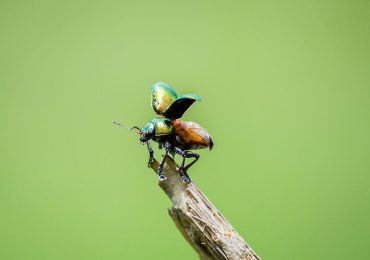The JRB Photo Editor Victor Dlamini interviewed South African Poet Laureate Keorapetse ‘Bra Willie’ Kgositsile back in 2008. Listen to the podcast below.
Kgositsile passed away on 3 January 2018 in Johannesburg at the age of seventy-nine.
At the time of the interview, Dlamini wrote:
It is his ability to capture, in movingly lyrical poetry, his very deep love for the musicians who brought us jazz—the stand out art form of the 20th century—that has endeared Keorapetse ‘Bra Willie’ Kgositsile to lovers of poetry. Keorapetse is South Africa’s Poet Laureate: a fitting role for a writer whose work is littered with lines that elevate the human spirit and oppose all that limits freedom. But it shows the measure of the man that, even as he performs his official duties, he has maintained the delicate balance of the celebrated griot—the one who praises and chastises his patron and society in the very same moment.
In his collection, This Way I Salute You, Keorapetse pays homage to jazz artists with distinctive voices on their chosen instrument, whether it be the trumpet of Hugh Masekela, the double-bass of Johnny Dyani, the saxophone of John Coltrane, Billie Holiday’s delicate and Nina Simone’s gruff vocals, or the incomparably beautiful singing of Cassandra Wilson. He also pays homage to other poets, like Senghor, and it is an affirmation of his status as a proponent of Pan Africanism that his references to African leaders cut across the arbitrary borders that were the result of the Scramble for Africa.
In our conversation, Keorapetse asks provocatively, why it is that in South Africa the bantustan borders created during the apartheid era were rejected so forcefully—while those of the Colonial Cartographers, the Europeans who carved Africa up, creating countries ex-nihilo in the late 19th-century, have been embraced, even though they were similarly imposed from the outside?
Join me on The Victor Dlamini Literary Podcast as I chat to Keorapetse about his poetry and his love for jazz, and why he thinks it is best for artists to leave it to their peers to rate their work. It is fascinating to hear Keorapetse speak about the craft that has received so much of his own creative attention. In an age when excessive politeness has made it dangerous to speak one’s mind, Keorapetse tells it like it is.
I was intrigued by his insistence that those who take up the pen or pound the keyboards should not appropriate for themselves the various tags of ‘writers’ or ‘poets’, but that they should leave it to the community of writers to welcome them into the fold. He is especially troubled that sometimes a person can join a writers’ organization by applying for membership without even being a writer! By contrast, he points out the example of Cuba, where there are local committees that oversee membership of writers’ and artists’ organizations.
Keorapetse Kgositsile’s very DNA seems to code for poetry-as-music-as-truth. His work cannot be summed up in any neat and convenient way, but he can be seen as one who has spoken the truth of the poet on a range of subjects, whether it is the urgent message of liberation or the more languid but no less vital message of his personal loves.
He was born in Johannesburg in 1938 and he has always mixed his role as writer with those of teacher and activist. He achieved fame as a poet during his years in the United States: in the 1970s he was a central figure among African-American poets, encouraging interest in Africa as well as the practice of poetry as a performance art. His name was known in the New York City jazz clubs for his vibrant readings there. He was one of the first to bridge the gap between African poetry and Black poetry in the United States, and is thus one of the first and most significant poets in the Pan-African movement.
Keorapetse left the US in 1975, and we are fortunate that, in the wider continent of Africa, he still calls our corner of it home.
Please enjoy the conversation:





